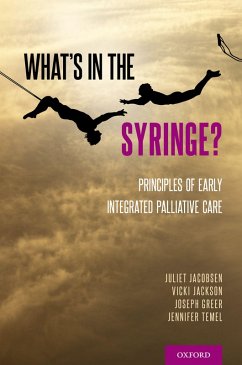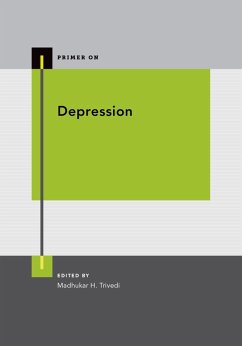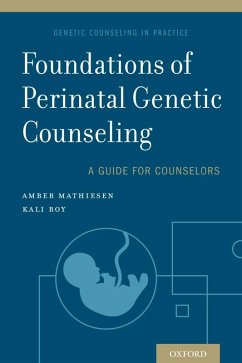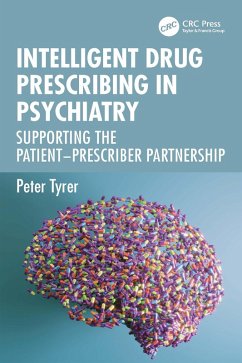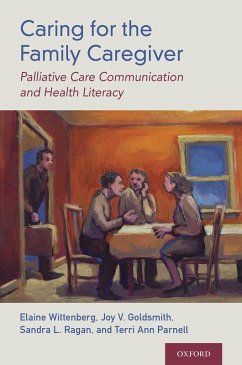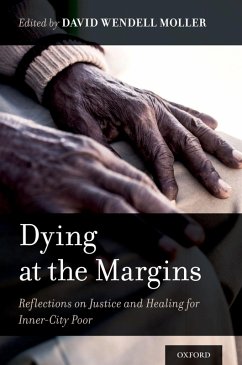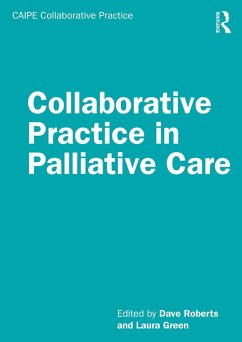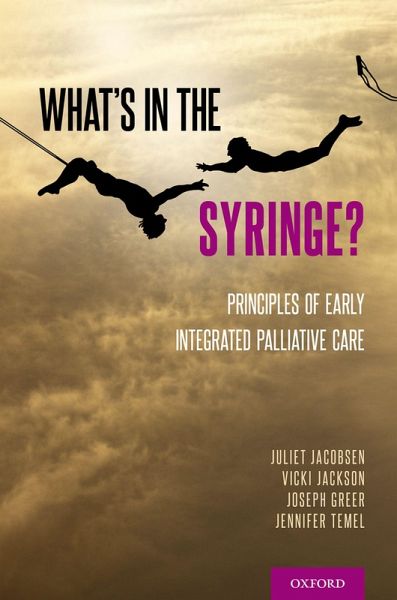
What's in the Syringe? (eBook, ePUB)
Principles of Early Integrated Palliative Care
Versandkostenfrei!
Sofort per Download lieferbar
17,95 €
inkl. MwSt.
Weitere Ausgaben:

PAYBACK Punkte
9 °P sammeln!
What's in the Syringe? offers a succinct overview of the psychological skills of outpatient palliative care, teaching clinicians how to help patients live well and acknowledge end of life as patients meet five challenges of serious illness. It explores how to help patients develop prognostic awareness, through which they pair hopes and worries and see themselves with clarity and empathy. The book also teaches clinicians how to support patients' coping skills. As patients use these skills, they improve their quality of life and deepen their prognostic awareness, helping them make informed medic...
What's in the Syringe? offers a succinct overview of the psychological skills of outpatient palliative care, teaching clinicians how to help patients live well and acknowledge end of life as patients meet five challenges of serious illness. It explores how to help patients develop prognostic awareness, through which they pair hopes and worries and see themselves with clarity and empathy. The book also teaches clinicians how to support patients' coping skills. As patients use these skills, they improve their quality of life and deepen their prognostic awareness, helping them make informed medical and personal decisions as they approach end of life. Illustrated, case-based chapters are organized from diagnosis to end of life and draw on two decades of research and clinical experience. Each chapter describes how palliative care and oncology clinicians can collaborate and explains the interpretive role of the palliative care clinician in helping the patient and oncologist understand each other. What's in the Syringe? is an essential resource for palliative care fellows, trainees, and clinicians, for oncologists, primary care clinicians, and medical students, and for all care providers working with patients facing serious illness.
Dieser Download kann aus rechtlichen Gründen nur mit Rechnungsadresse in A, B, BG, CY, CZ, D, DK, EW, E, FIN, F, GR, HR, H, IRL, I, LT, L, LR, M, NL, PL, P, R, S, SLO, SK ausgeliefert werden.




